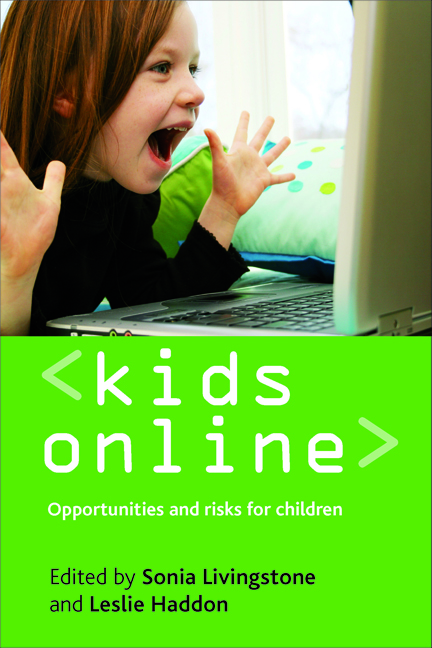Book contents
- Frontmatter
- Contents
- Notes on contributors
- Acknowledgements
- one Introduction
- Section I Researching European children online
- Section II Going online: new opportunities?
- Section III Going online: new risks?
- Section IV Policy implications
- Appendix A List of country codes
- Appendix B Children and parents online, by country
- Appendix C The EU Kids Online network
four - Opportunities and pitfalls of cross-national research
Published online by Cambridge University Press: 15 July 2022
- Frontmatter
- Contents
- Notes on contributors
- Acknowledgements
- one Introduction
- Section I Researching European children online
- Section II Going online: new opportunities?
- Section III Going online: new risks?
- Section IV Policy implications
- Appendix A List of country codes
- Appendix B Children and parents online, by country
- Appendix C The EU Kids Online network
Summary
Looking beyond national borders for comparative purposes has a long tradition in the history of social science research, and can be traced back to early social scientists such as Max Weber and Émile Durkheim. And a discussion of the methodology of cross-national comparison is not an entirely new phenomenon (Rokkan, 1968). However, it has only been in the last couple of decades that cross-national (or cross-cultural) comparative research has really gained in popularity in the social sciences (Hoffmeyer-Zlotnik and Harkness, 2005). Among processes that have contributed to this trend, we can certainly name the gradual internationalisation of the academic community and the removal of political barriers as well as the digitalisation of communication. Hence, crossing traditional boundaries – geographical as well as social and cultural – has become easier. Funding bodies and policy makers have also been increasingly calling for comparative research, and this call seems to be readily accepted by researchers who find themselves initiating or invited to collaborate in multinational comparative projects (Livingstone, 2003).
The topic of children's use of online media demonstrates perhaps better than most other research topics the potential and pitfalls of cross-national comparative research. This chapter addresses some of the key theoretical and methodological questions related to crossnational comparative research, focusing in particular on the research field of (new) media and communication technologies. Following their presentation and some critical reflections in the first part of the chapter, these methodological considerations will then be applied to the topic of children's online behaviour and online risks and opportunities, taking the research conducted within the European Union (EU) Kids Online project as a concrete empirical example.
Existing research on children and new media: single countries dominate
As noted in Chapter Two of this volume, one of the steps taken in the EU Kids Online project involved mapping the available research on children's access to and use of the internet and related online and mobile technologies in the 21 countries participating in the project (for a description of the collection policy and key findings see Staksrud et al, 2009). Based on the sample of almost 400 studies collected and conducted in the years 2000-08, cross-national research does not seem to be the most common type of research.
- Type
- Chapter
- Information
- Kids OnlineOpportunities and Risks for Children, pp. 41 - 54Publisher: Bristol University PressPrint publication year: 2009
- 5
- Cited by



